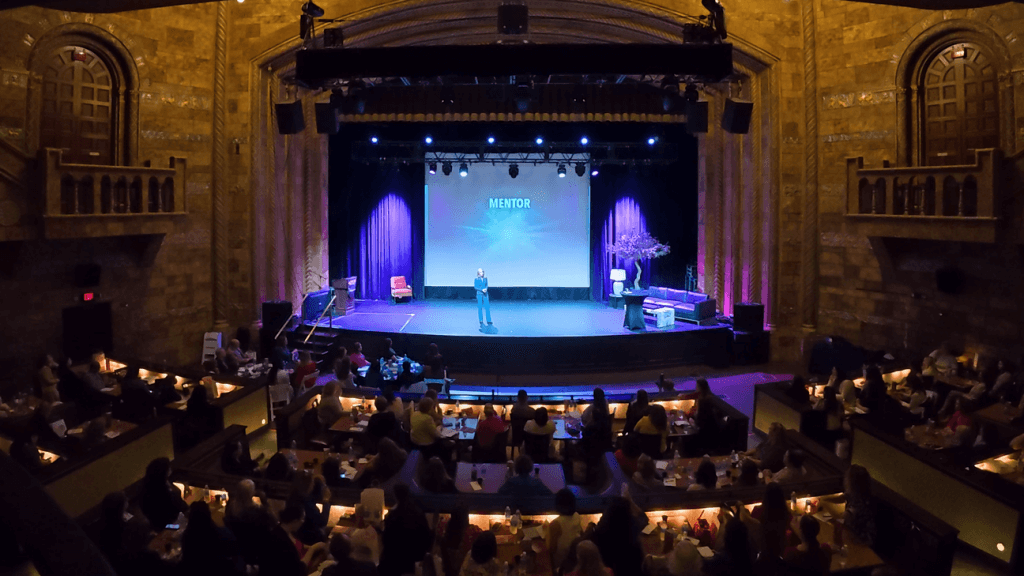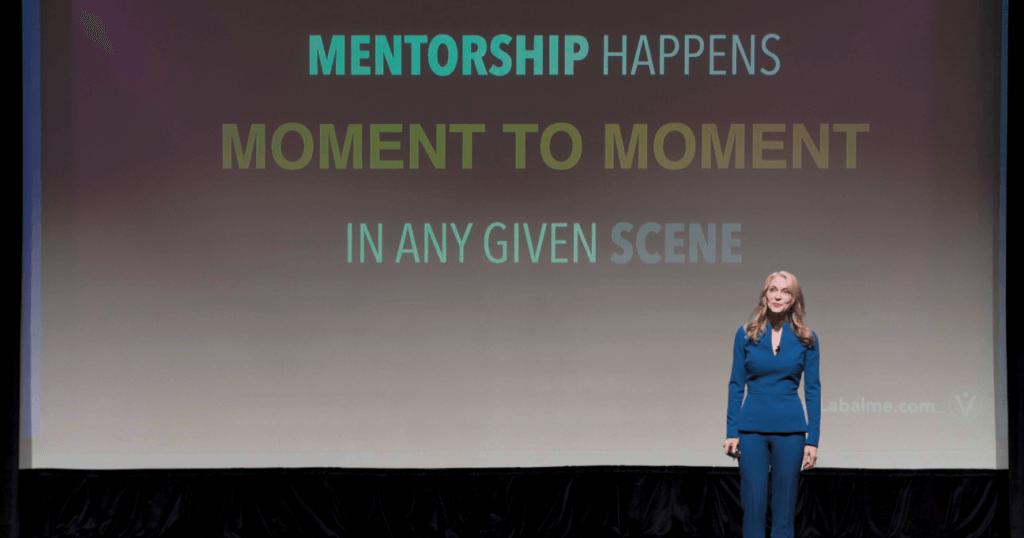
Mentorship has been very much
on my mind lately, largely because
I’ve been deep in prep
for a keynote which I delivered on
May 1 for 500 women in business.

The conference theme focused
on Leadership & Mentorship,
and I thought I’d share
some of my insights here.
(I’ve also included far below
3 of many misconceptions about mentorship.)
Long before it was part of a LinkedIn profile
or an organizational initiative,
the word mentor first appeared
in Greek mythology.
Mentor was the name of a
character in Homer’s Odyssey,
a wise advisor whom Odysseus
entrusted to care for
and guide his son, Telemachus,
while he (Odysseus) was away at war.
But here’s the part of the myth
that is not often revealed:
it was actually the goddess Athena
—disguised as Mentor—
who provided the guidance and wisdom,
whispering truth & encouragement
at just the right time.
A mentor is, in its essence,
someone who provides inspiration and key insights,
who sees qualities in others
and helps them hear their own voice.
Each of us has the capability to do that.
Mentorship is not simply
the exchange of information;
it’s a sacred relationship.
It’s about guiding a soul through uncertainty
(and eternity) so it can rediscover itself.
The next time someone comes to you for advice,
rather than give them your opinion
or the answer,
help them find their own truth.
Listen deeply, even for what’s not being said.
Ask questions. And then offer
those perspective and insights
which provide clarity
so the person can find their own way.
Risk Forward & Mentor On,

P.S. Three Misconceptions about mentorship:
- Mentors give advice
- Mentors must be experts
- Mentorship is a large & lengthy commitment
None of these is true. The last one is particularly interesting because as we each know, a single conversation can change the course of someone’s life or career.
P.P.S. Lucky me: the conference was hosted in the beautiful Rococo theater in Lincoln, NE. Many thanks to the Lincoln Chamber of Commerce for inviting me. It was an absolute joy.

